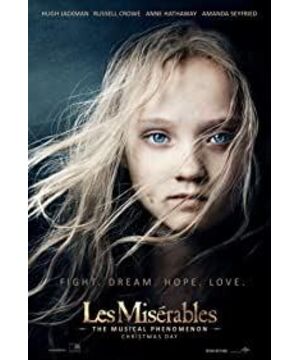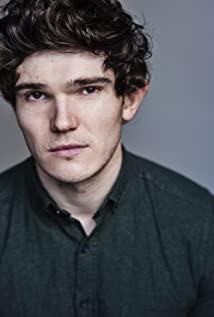When I was a child, there was a set of abbreviated books of world famous books in the bookcase. That was the first time I read this story-"Les Miserables". I don't know why, even if I am so young, I will be deeply touched by this world, as if suffering is something that is more direct than joy. I am ashamed that when I finally understood the original version, I have not been able to read the novels of Les Misérables from start to finish. I read two-thirds of the Chinese version, and then stagnated when I reached the revolution, and the French version. Even after reading the beginning, he couldn't eat anymore. This is to blame Hugo-if he was in the celestial dynasty, he would be scolded by the teacher for writing essays-he really likes writing a thousand words and digressing.
Later, one summer in the past few years, I went to Paris. I saw an advertisement for the musical "Les Miserables" in the subway and bought a ticket to watch it without hesitation. I'm not an authentic musical fan, but this 50 euros is not a pain. Epney’s On my own made people feel sad, and the revolutionaries’ Do you hear people sing made me boil for a moment, but in Marius’s mourning song, I was sitting there with tears. Full of face... For several days after I came out of the theater, I was still in a trance with those passionate or sentimental melodies. When I returned home, I immediately took down the video of the 10th anniversary concert-this video still exists in my computer.
Later, I had the opportunity to do the musical again in Madrid. However, when I heard that it was the Spanish version, I was a little discouraged. I always felt like a plate of Sichuan cuisine eaten in a foreign Chinese restaurant. The only thing similar to the original version is the name. .
So, this evening, sitting in the theater, when the melody of "Look down, look down" suddenly sounded, an unspeakable excitement suddenly rose from the soles of the feet and rose directly to the top of the head, mixed with the story from the boyhood. , All the memories of these melodies. Miserable World-This is probably one of the few stories I have grown up with.
Back to the movie.
After knowing that this musical will be transformed into a movie, and hearing about the casting of the movie, I have been full of expectations for this book. But for some reason, I take it for granted that Wolverine Hugh Jackman is a harsh and rigid Javert, and Russell Crowe is the powerful and compassionate Jean Valjean, or they are actually very It fits my imagination of these two characters, but the position is reversed. So after seeing the movie trailer, I felt like everything was ruined.
However, sitting in the movie theater, I realized that Hugh Jackman really supported the role of Jean Valjean-the angry eyes in the suffering, the struggle after being probated by Bishop Bian Furu, looking towards Fantine and Cosette. Gentleness, the touch of a young man who sacrificed his life for his ideals in a barricade battle, and the calm before leaving... This Wolverine is actually not hideous at all. Although Uncle Hugh's singing is still a little far away from the original drama, it is a movie after all. Skilled performance and rich body language can make up for this shortcoming. What's more, the characteristics of the musical form make the lens often take close-ups of the characters, and the expressions are infinitely magnified, which has achieved his acting skills.
Instead, it was Javert. This was supposed to be an important role throughout the show, but Russell Crowe seemed to be a bit sloppy this time. The aria was not vigorous, and it was far less handy than usual. Stars was sung as plain as water by him, before committing suicide. That section should have been a small orgasm, but it was completely scratching. Well, I regretted it, but fortunately I didn't let him play Jean Valjean...
As for the surprise, it was naturally Anne Hathaway. First, I never thought that she had such a good voice; second, I never knew that she could act so heartbreakingly for a woman who was insulted and tortured at the bottom.
Fantine's role is not long, but every shot of Anne Hathaway is not wasted. From an ordinary small and beautiful female worker, to flying in misfortune to lose her job, to selling hair and teeth to treat her daughter's illness, to betraying her body, and the darkness of life only has the insignificant light of caring for her daughter, Each of these levels has been convincingly demonstrated by Hathaway. She appropriately interprets the humbleness, dreams, struggles, compromises and despair of a small person, especially a woman who has nothing to do. I dreamed a dream to hear my heartache—even in the original musical, this passage that everyone hailed as a classic didn’t move me so much, but Hathaway’s trembling voice and the cloth A face full of dirt, as if I was really tortured by life and lost all the youthful splendor, but let this melody really come into my heart. The sentence "I had a dream my life would be, so different from this hell I'm living, so different now from what it seems" was sung by her almost hysterically, as if it was an unbearable burst out of a long silence and depression Screamed in grief and anger, and then the phrase "Though life has killed the dream I dreamed" with a crying sound, it was like a fragment of a dream that was scattered all over the floor, leaving a dead silence. The heart of the writer was also broken.
In addition to the most classic I dreamed a dream, Fantine’s Come to Me sung to her daughter before her death is also quite contagious, and the maternal brilliance on Hathaway’s face is moving. It is no exaggeration to say that this role should be able to impact another Oscar honor for her.
The revolution is the most exciting climax in the whole play. From "Red and black" conspired by the tavern, to "One day more" when the fate of the people met on the eve of the revolution, to "Do you hear the people sing" when the revolution broke out, and "Drink with me" before the barricade fell, Mali Uss returned to the pub to mourn his dead friend's "Empty chairs at empty tables". It was so exciting and exciting. Among them, the editing of One day more instantly demonstrated the advantages of the film, and the multi-line narrative approach was more fuller, which suddenly overwhelmed the momentum of the original musical. Do you hear the people sing is a big scene with not many movies, naturally, there is a magnificent wave. But my favorite is still that paragraph-Empty chairs at empty tables.
This aria has always been my favorite part of the whole play. But to be honest, the movie version gave me a bit of slander: I originally thought that the art form of film could better render the atmosphere of tragedy, but I did not want to be inferior to the treatment of musicals in the form-those dead faces are in Marius. A piece of Zhang quietly appeared behind him, and then disappeared silently. The shock and grief of this scene are far greater than that of Marius's monologue to an empty room in the movie.
As Eddie Marius, my memory of this freckled guy still lingers in the little boy who has a near-innocent love with his mother in a certain movie. His image is too weak and literary. Fortunately, this time he did not soften the role of Marius too much. The two lines of fascination with Cosette and determination to the revolution have been achieved in him. Parallel without contradiction, what you see is a romantic youth full of tenderness, and a hero who was born and died in a barricade war. However, when his old friends have passed away, and when Eppeny gave his life for him, how could he sing "Oh my friends, my friends forgive me, That I live and you are gone" to the empty tables and chairs. "After that, he left all the misery and grief behind him, and since then "living a happy life" like in a fairy tale? Perhaps this kind of treatment is nothing more than reality. When people leave, there is life and death, and life has to go on, but the phrase "Oh my friends, my friends don't ask me, what your sacrifice was for" is infinite. desolate. Yes, what is the significance of the sacrifice of those young lives? Paris did not awaken the people, not turned upside down in exchange for what they want, even their old friends back to the original but also comfortable life, but for them, but it is - "Tomorrow will never come" ......
say security Jolera, the central figure in this revolution, is not well highlighted in the movie. I have always deeply remembered in the original novel, at the moment of failure of the revolution, facing the gunpoint, how he stood side by side with the drunken Grantaire who had just woke up, smiling calmly and welcoming death—that scene was in my childhood heart It left the first impression of greatness and freedom, so that when I was watching a musical that year, I kept rubbing my 600-degree nearsighted eyes, trying to see if this handsome blond guy was really like what I had been yelling about since childhood. Hansome. But it is a pity that in the movie, his death is not even as heroic as the show. This is also the point that I am most dissatisfied with the movie version.
As for other characters, when it comes to film and original poster image spokesperson Cosette, compared to the adult version played by Amanda, I prefer the timid little girl dragging water in the snow. For some reason, when Cosette grew up, although Marius fell in love at first sight, she did not see any charm. This may be a question of character setting. Just like the sister Qiao in "A Dream of Red Mansions", she met her benefactor and changed her tragic fate. She even found her own happiness, but she also integrated into the ordinary people. It's that Amanda's singing skills are not as bad as I thought. Epeni's singing skills are surprisingly good, and later I found out that the original Epeni was originally played by the original drama. It's no wonder that he could sing that episode on my own so much. The couple of inn owners are indispensable harlequins. Their appearance can always slightly adjust the heavy atmosphere, which makes people smile.
Generally speaking, the movie version has a slightly faster pace, good pictures and colors, and a collection of big names, but it is basically a faithful copy of the original drama, and even the scenes and costumes are exactly the same. Give four stars, one of them because of Anne Hathaway. But I also advise everyone, if you have not read the original novel, listened to the music in the play and are not interested in this art form, don’t go to the cinema to find it. This movie is really not suitable for those who have nothing to do with the melody of this story. People who know and have no emotions. It is more like a musical with epic grandeur than a movie in the concept of most people.
View more about Les Misérables reviews









